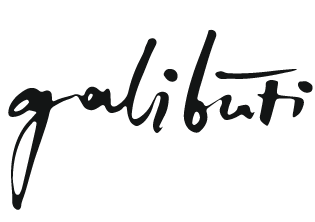30 Sep Emotional Intelligence: Your Personal Compass on Life's Journey

Have you ever wondered why some people seem to navigate life with ease, while others are constantly stuck in emotional turmoil? The answer is simple – emotional intelligence. It’s like a personal compass that helps you not only understand your feelings, but also “make friends” with them, which is incredibly important in relationships, work, and life in general. We share the thoughts of Arnoldas Jasiūnas, a psychologist from the “Gali būti” clinic, about what this personal life compass is and how everyone can have it.
What is emotional intelligence?
Imagine that your emotions are different musical instruments. Anger is noisy drums, joy is sonorous violins, and sadness is a melancholic cello. Emotional intelligence is the ability not only to hear all these instruments, but also to play them beautifully, creating a harmonious melody. Why is this important in relationships? You are trying to play a duet with another musician, but you are unable to hear your instrument or understand what he is playing. Real chaos, right? The same is true in relationships. If you do not understand your emotions or cannot listen to your partner's feelings, it is difficult to create harmony. Emotional intelligence helps you not only hear, but also understand each other, even when words are not spoken. It is like the secret ingredient that helps create a strong and deep connection.
Can everyone become an emotion? maestro?
While some people may have a natural tendency to better understand their own and others' emotions, emotional intelligence is not just an innate talent. It is like a muscle that we can strengthen and develop through conscious effort and practice.
So how do you start?
● Listen to your inner music: Take time to get to know your emotions. When do you feel happy, sad, angry, or scared? What triggers these feelings? The more you listen to your inner music, the better you will understand its melodies and rhythms.
● Follow other "musicians": Empathy is the ability to put yourself in another person's shoes. Observe other people's body language, facial expressions, and tone of voice. Try to understand what emotions they are expressing and why.
● Don't forget to breathe.: When you feel your emotions taking over, don't react impulsively. Stop, take a deep breath, and think about how to best express your feelings so they are heard and understood.
● Practice, practice, practice: Like any other skill, emotional intelligence takes practice. The more you try to understand and manage your emotions, the better "conductor" you will become.
Shield from stress and conflict
Stress and conflict are an integral part of life. Emotional intelligence can help you overcome them. For example, imagine that you are stuck in traffic and are late for an important meeting. Instead of panicking and getting angry at other drivers, you can take a deep breath and try to calm down. This will help you stay focused and make better decisions. What if you have a fight with a friend? Instead of jumping to accusations, try to understand how he feels and why he reacted the way he did. This will help you find a compromise and save the friendship.
Mindfulness – the key to emotional intelligence
Have you ever tried to simply be here and now, without being distracted by thoughts and worries? This is what mindfulness is – like a spotlight that illuminates your inner world. It helps you better understand your emotions and thoughts, without judging or evaluating them. Try to devote at least 5 minutes every day to mindfulness meditation. This can be as simple as sitting and observing your breathing. You will see how this will help you better understand yourself and your emotions.
Emotional intelligence is not only the ability to understand and manage your emotions, but also to build harmonious relationships with yourself and others. It is a journey, not a destination. Every step you take towards better understanding your emotions is valuable. So start today and discover how emotional intelligence can enrich your life.
The blog post was created as part of the implementation of the "Gali būti" clinic's project "Increasing Mental Health Literacy through Training and Group Practices" and is funded by the Vilnius City Municipality's Public Health Support Special Program.



Nėra komentarų